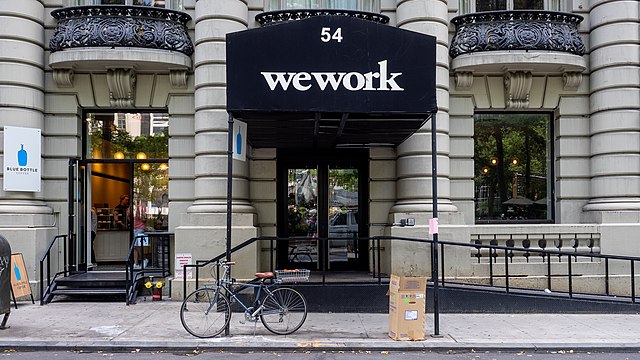WeWork (WE) has received court approval to exit Chapter 11 bankruptcy, enabling the shared office space provider to eliminate $4 billion in debt and transfer its equity to a group of lenders and real estate technology company Yardi Systems. This development marks a significant turnaround for WeWork, which had expanded rapidly but incurred heavy losses due to its extensive real estate portfolio. The approval from U.S. Bankruptcy Judge John Sherwood in Newark, New Jersey, clears the path for WeWork to emerge from bankruptcy within days, free from debt, according to WeWork attorney Steven Serajeddini.
During its bankruptcy proceedings, WeWork negotiated substantial reductions in future rent costs from its landlords and canceled leases at about one-third of its locations, cutting its future rent obligations by over $12 billion. Post-bankruptcy, WeWork plans to operate 337 shared office spaces, with more than 170 located in the U.S. and Canada. CEO David Tolley attributed the successful restructuring to the dedication of WeWork’s team and the steadfast support of its members.
Market Overview:- WeWork is set to eliminate $4 billion in debt and transfer its equity to lenders and Yardi Systems.
- The company reduced future rent obligations by over $12 billion by negotiating with landlords and canceling leases.
- WeWork plans to operate 337 locations post-bankruptcy, with significant presence in the U.S. and Canada.
- WeWork's rapid expansion led to substantial losses, necessitating bankruptcy protection.
- The company rejected an alternate buyout proposal from co-founder and ex-CEO Adam Neumann.
- SoftBank, WeWork’s top shareholder, will retain a minority equity stake due to loans provided to the company.
- WeWork aims to complete its exit from bankruptcy within days, emerging debt-free.
- The restructuring positions WeWork for a more sustainable future with a significantly reduced real estate footprint.
- The company's post-bankruptcy equity is estimated to be worth about $750 million, down from a peak valuation of $47 billion.
WeWork dismissed a buyout proposal from its co-founder and former CEO Adam Neumann, citing insufficient pricing to persuade lenders. Instead, lenders opted for an equity stake as part of the bankruptcy agreement. Despite canceling existing equity shares, SoftBank will maintain a minority stake due to its loans to WeWork. The company, which once boasted a valuation of $47 billion, now estimates its post-bankruptcy equity at approximately $750 million.




